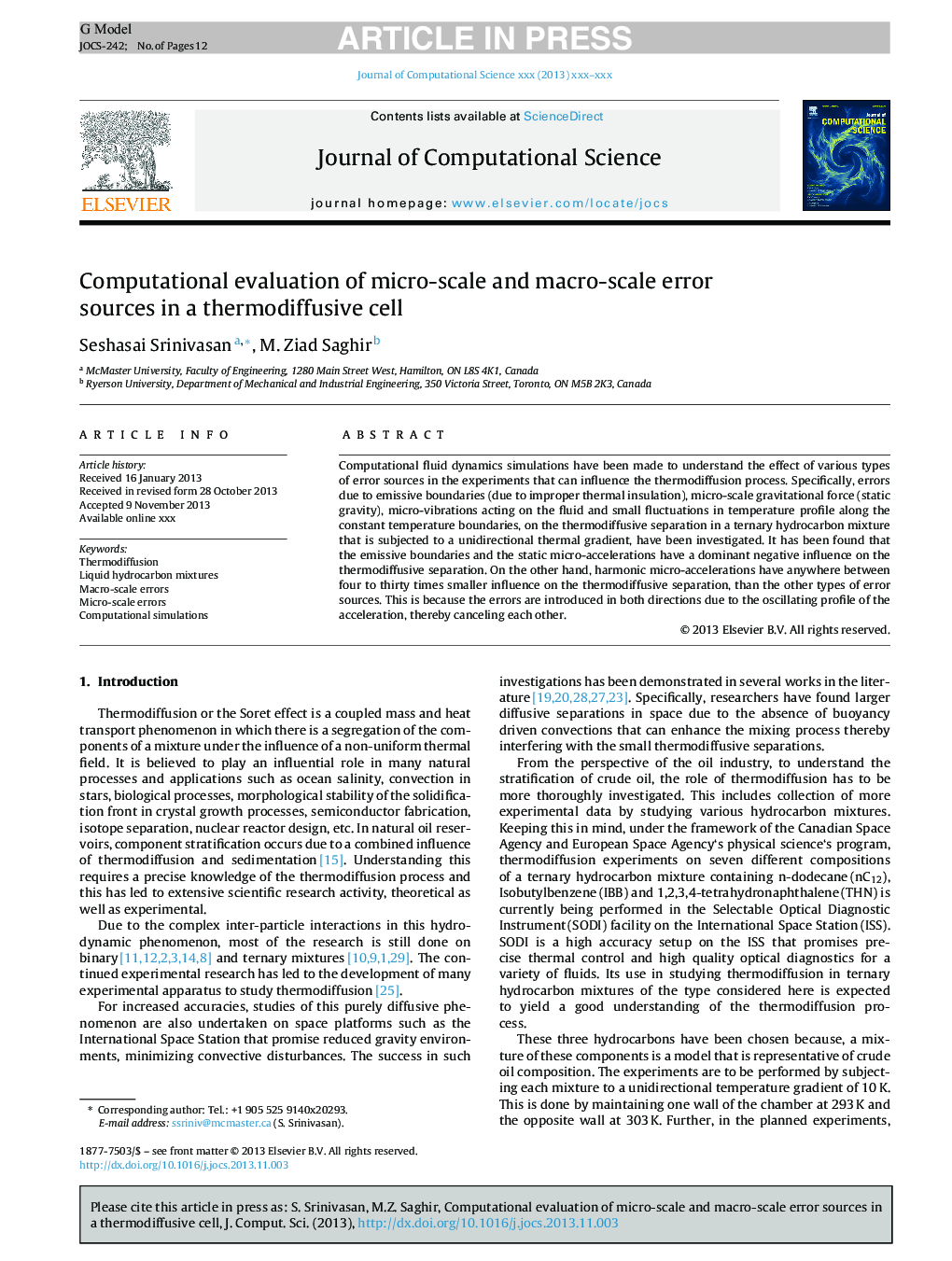| Article ID | Journal | Published Year | Pages | File Type |
|---|---|---|---|---|
| 10332825 | Journal of Computational Science | 2014 | 12 Pages |
Abstract
Computational fluid dynamics simulations have been made to understand the effect of various types of error sources in the experiments that can influence the thermodiffusion process. Specifically, errors due to emissive boundaries (due to improper thermal insulation), micro-scale gravitational force (static gravity), micro-vibrations acting on the fluid and small fluctuations in temperature profile along the constant temperature boundaries, on the thermodiffusive separation in a ternary hydrocarbon mixture that is subjected to a unidirectional thermal gradient, have been investigated. It has been found that the emissive boundaries and the static micro-accelerations have a dominant negative influence on the thermodiffusive separation. On the other hand, harmonic micro-accelerations have anywhere between four to thirty times smaller influence on the thermodiffusive separation, than the other types of error sources. This is because the errors are introduced in both directions due to the oscillating profile of the acceleration, thereby canceling each other.
Related Topics
Physical Sciences and Engineering
Computer Science
Computational Theory and Mathematics
Authors
Seshasai Srinivasan, M. Ziad Saghir,
